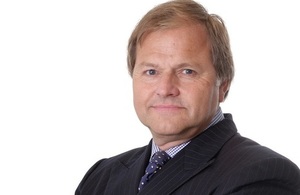Intercontinental Wines Limited was wound up in the public interest at the High Court on 23 November 2018, with the Official Receiver appointed as liquidator. The company’s sole appointed director since incorporation in 2011 has been David Angel.
The court heard that the company claimed to be a wine broker and used high-pressure cold calling to target members of the public.
Representatives would emphasise that investments in wine were secure and resulted in profitable returns. Customers were also told that the cases of fine wine would be stored in bonded warehouses under personal accounts.
However, customers began to complain about various matters, including a complete failure by the company to respond to queries, such as information about the safe holding of wines supposedly purchased on their behalf.
Complaints were made to the Insolvency Service, with the following investigation discovering that Intercontinental Wines only made purchases for a small percentage of paid customers on an apparently ad hoc basis and not according to its contractual requirements to do so on behalf of each customer.
And only around 10% of customers had cases of fine wine stored in bonded warehouses under personal accounts.
Further enquiries found that Intercontinental Wines’ bank records and financial statements showed wine purchased by the company was only worth a fraction of their sales by value.
In a two-year period between March 2015 and February 2017 the company made sales of over £460,000, while purchasing just only £100,000 worth of stock. This meant that without knowing it, customers would need the value of the wine to increase by more than 400% to at least break-even.
The company failed to provide records of customers’ purchases and it was only later when investigators obtained the banking records, were they able to evidence that only a small proportion of sales proceeds were used to purchase wine. Instead, the company’s bank accounts were used for personal expenditure.
And the company vacated its joint trading and registered premises in Southampton in March 2018 but failed to disclose this to customers or to the Registrar of Companies.
Irshard Mohammed, Senior Investigator & Case Manager at the Insolvency Service, said:
Intercontinental Wines enticed customers with the promise of attractive returns from building a portfolio of fine wines, entrusting the company to make purchases and store wines at bonded warehouses on their behalf. However, the company blatantly failed to do so in the vast majority of sales made and instead took customers’ funds on face value, frittering it away on unexplained or personal expenditure.
These winding-up proceedings show that we will take firm action against companies that operate in such an unscrupulous way.
By virtue of the appointment of the Official Receiver all public enquiries concerning the affairs of the company should be made to: The Official Receiver, Public Interest Unit, 2nd Floor, 4 Abbey Orchard Street, London SW1P 2HT. Email: piu.south@insolvency.gsi.gov.uk.
Intercontinental Wines Limited, company registration number 7672315, was incorporated on 16 June 2011. The company’s registered office is at Threefield House, Threefield Lane, Southampton, England, SO14 3LP, that of a serviced office provider.
The petition to wind-up Intercontinental Wines Limited was presented under s124A of the Insolvency Act 1986 on 12 October 2018. The company was wound up on 23 November 2018 and the Official Receiver has been appointed as liquidator.
Company Investigations, part of the Insolvency Service, uses powers under the Companies Act 1985 to conduct confidential fact-finding investigations into the activities of live limited companies in the UK on behalf of the Secretary of State for Business, Energy & Industrial Strategy (BEIS). Further information about live company investigations is available here.
The Insolvency Service, an executive agency sponsored by the Department for Business, Energy and Industrial Strategy (BEIS), administers the insolvency regime, and aims to deliver and promote a range of investigation and enforcement activities both civil and criminal in nature, to support fair and open markets. We do this by effectively enforcing the statutory company and insolvency regimes, maintaining public confidence in those regimes and reducing the harm caused to victims of fraudulent activity and to the business community, including dealing with the disqualification of directors in corporate failures.
Further information about the work of the Insolvency Service, and how to complain about financial misconduct, is available.
Media enquiries for this press release – 020 7637 6498
You can also follow the Insolvency Service on:

